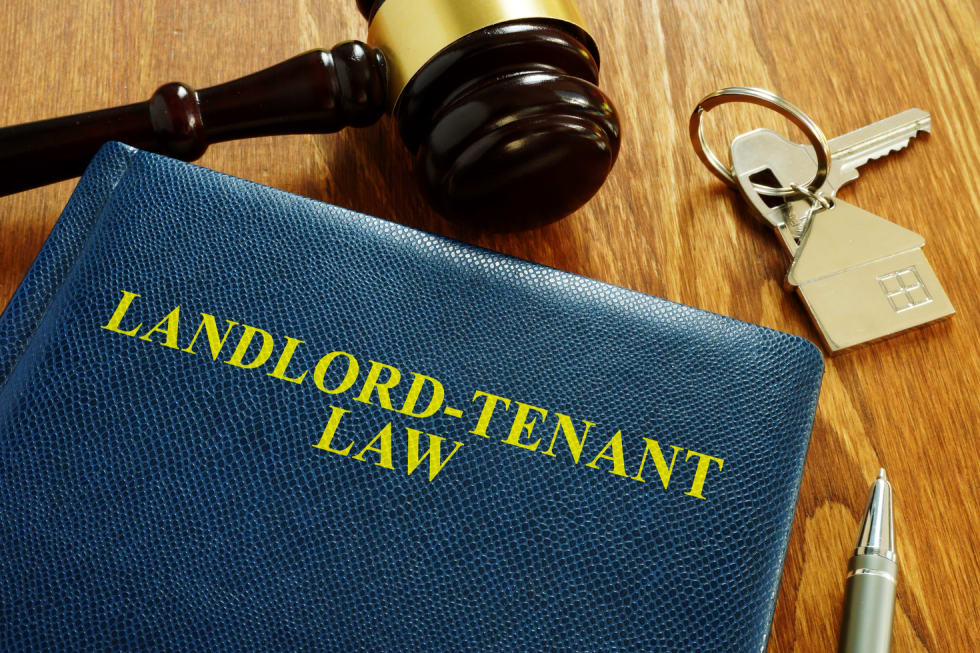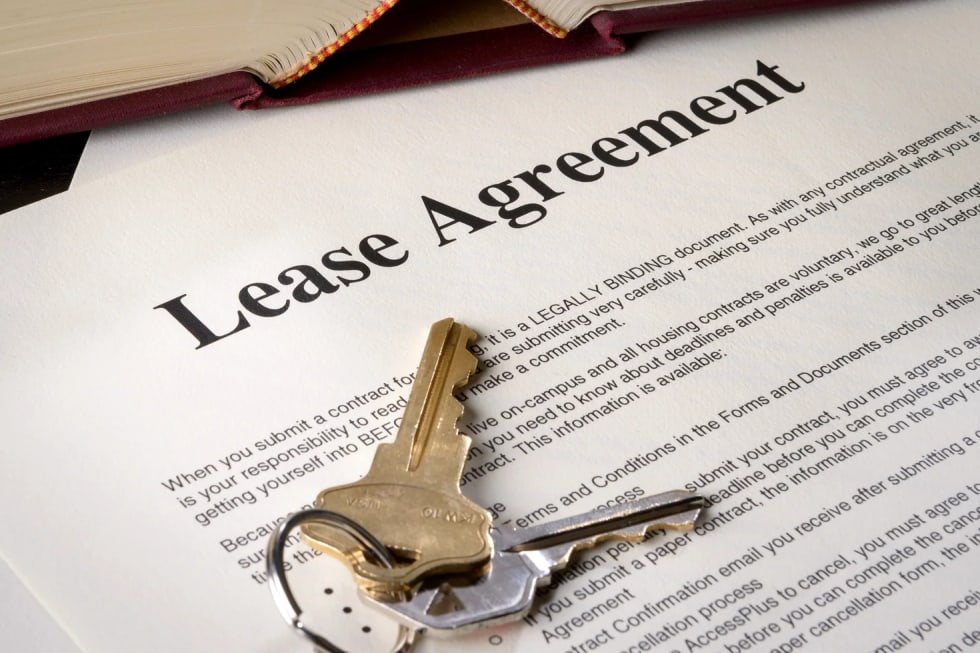How to Become a Landlord [2023 Guide]

If you're eager to dive into the worlds of entrepreneurship and real estate, learning how to become a landlord could be a rewarding and potentially lucrative path for you. This venture requires not only resources but also a well-rounded understanding of local real estate and tenant laws, setting the foundation for your journey to becoming a landlord.
Not sure how to become a landlord? You've come to the right place. Our guide will walk you through the essential steps, from understanding legal requirements to drafting lease agreements. We offer practical tips that span the gamut of rental property management, aiming to set you up for success in your new role as a landlord.
How to Become a Landlord
- 1. Familiarize Yourself With Landlord-Tenant Laws
- 2. Purchase Investment Property
- 3. Determine If You Need an LLC
- 4. Purchase Landlord Insurance
- 5. Acquire a Rental Registry
- 6. Prepare Your Investment Property for Move-In
- 7. Decide on Rent Prices
- 8. Market Your Property
- 9. Draft and Sign a Lease Agreement
- 10. Put Money Aside
- 11. Keep Your Property in Good Condition
- 12. Consider Hiring a Property Manager
1. Familiarize Yourself With Landlord-Tenant Laws

Prospective landlords should brush up on landlord-tenant laws. These requirements differ from state to state. Landlord requirements are also frequently updated and remain under scrutiny by local governments, so revisit them periodically. Take the time to study your local laws to avoid lawsuits or issues with tenants.
Talking with a local landlord in the area may be helpful. Although they can't give you legal advice like a lawyer would, they can share their experiences and insights on what to expect, including the cost of being a landlord in your area. It's also wise to consult a landlord-tenant lawyer if you have specific questions or concerns. But until then, continue reading this guide to being a landlord!
2. Purchase Investment Property
Before purchasing an investment property, ensure it can produce positive cash flow in the current real estate market. Calculate the numbers to see if it's within your budget and in good condition. It should also offer a potentially high return on investment (ROI) if you sell it in the future. For example, is the home or building in a growing town or city? That's a good sign; you should make a profit if you ever sell.
Once you find some properties that meet your criteria, consider if they're close enough to your home to manage it yourself. If you still have money left over to hire a trustworthy property manager or superintendent, you can outsource the job, but that isn’t necessary for becoming a rental property owner. A walkable neighborhood is also a draw for renters, in addition to safety and a reasonable commute to a city-center university.
3. Determine If You Need an LLC
An LLC, or limited liability company, can make sense for landlords due to the protections it provides. An LLC protects personal assets from lawsuits, makes it easier to pass properties on to heirs, and offers tax flexibility. You can choose to be taxed as a sole proprietor or partnership to avoid both you and your rental business being taxed on the same property.
However, be wise when setting up an LLC or another business entity. We can't offer legal or tax advice about your specific situation as the owner of a rental property, and it's always best to consult a lawyer or accountant specializing in real estate and rental businesses.
4. Purchase Landlord Insurance
Purchasing landlord insurance is a must to protect your property and finances against sudden losses, accidents, or natural disasters. It can also protect you if a tenant ever sues you. A first-time landlord should check in with their insurance agency to ask about coverage.
The price of your landlord's insurance will depend on your property's structure, the legal costs associated with the type of investment property you own, and any outstanding medical expenses related to your property. It should also look at the potential loss of income if you need to make repairs. Depending on your situation, you may need an additional policy if you live in a high-risk area for earthquakes or other natural disasters.
5. Acquire a Rental Registry
Before you start renting out units, you should secure a rental registry for your business. These registries are databases that include all the information about the owner of a rental property and their rental property. It's also part of the process of registering a property with your city and getting their approval to start leasing to renters and collecting rent. Landlords use these registries to access government forms, report their vacancy rates, and pay fees.
6. Prepare Your Investment Property for Move-In

Your rental must be livable, comfortable, and presentable to prospective tenants. This is the time to fix holes in the wall, secure window latches or loose baseboards, and make any necessary upgrades to appliances to make your apartment more desirable. Thoroughly cleaning your apartment can also help get your unit sparkling and eliminate any lingering odors from past tenants.
Clean up any common areas and landscaping to make your rental more inviting. Ensure your property is up to code with working carbon monoxide detectors and smoke alarms and have the electricity checked by a local electrician. Manicuring the property before you put it on the market could influence how much prospective tenants are willing to spend to snag your space. It’ll also help you get your cash flow moving sooner once a tenant is ready to move in.
7. Decide on Rent Prices
You want to make the most money you can off a rental property while still attracting qualified tenants. If you set the rent too low in hopes of renting it quickly, you're missing out on valuable profits that help fuel your rental business. But if you set it too high, you won't attract renters and may have a higher turnover as your tenants move on to properties with cheaper rent. Regardless of the rent you set, you want it to cover your net operating income.
Your amenities can also have an impact on your rental prices. If your unit is smaller than your competitors’ but offers a pool, on-site fitness center, and rooftop terrace, you can charge more while keeping the price competitive.
8. Market Your Property
Once your rents are set, it's time to market and rent your property. You'll need to post enticing ads that showcase your property, host open houses, and consider a referral program. For example, if your building already has renters that you inherited, you can offer them a gift card or a small commission every time they recommend a prospective renter that signs a lease for another one of your properties.
Marketing can take some time to master, so you want to plan ahead to ensure your apartments don't sit vacant for long. You also don't need to spend anything on marketing or advertising. You could team up with a business that benefits your renters, such as a dog-walking company or dry cleaner, and agree to post each other's flyers to drum up reciprocal business.
9. Draft and Sign a Lease Agreement

The steps to become a landlord include plenty of paperwork. Prepare your lease agreement for signing, including setting rules and expectations for the renter and landlord. The agreement must also comply with relevant local laws. If you're using a lease agreement template, make sure it's adequately customized for your property. Ask a lawyer to look it over before reviewing it with your tenant.
You and the tenant will sign the lease, and everyone should get a copy. But if you don't want to handle the details of creating and managing the lease agreement, signing, or renewals, you can also hire a property manager to do it for you.
10. Put Money Aside
Being a landlord requires having some liquidated cash on hand. Beyond needing a down payment for your property, you also need money to make emergency repairs, pay contractors or maintenance workers, update the property, market your apartment, or deal with an empty unit for a few months. Money keeps your rental business afloat, but a good investment property with renters should offer a profitable return.
Experts advise landlords to use the 50% rule. This means setting aside half of your rental income for repairs, maintenance, and insurance. If you rent an apartment for $2,000 monthly, put aside $1,000 to cover your potential costs. If you have any money left over at the end of the year, you can always keep some in your emergency reserves and put the rest toward another investment property.
11. Keep Your Property in Good Condition
Keeping your apartment and property in good condition is part of finding success in your rental business and keeping tenants happy. It reduces drama and turnover when tenants aren’t unhappy with peeling paint, dim lighting, or security issues. Keeping your investment property in excellent shape also makes it easier to rent out as vacancies arise.
12. Consider Hiring a Property Manager
If you're wary of dealing with all the details and issues landlords face, you can also outsource it to the pros. Hire a property manager to handle the entire rental process or just the parts you don't want to do yourself. In most situations, you'll pay a portion of the rent to the property manager, usually between 8% and 10%. The cost is often well worth the trade-off, as it’s tax-deductible, and you can raise your rent slightly to cover most of these expenses.
Final Thoughts: Is Becoming a Landlord Worth It?
Ultimately, it depends on your goals, whether you have a desire for entrepreneurship and real estate investment, and if you're willing to stay flexible. You may not find your dream rental the first time, or you may realize you made a big mistake with your chosen tenants. Running a rental property business takes practice and diligence, but the tips in this guide for landlords can help turn it into a profitable, rewarding experience that yields long-term success.
Got other burning questions about investing in a rental property and finding tenants? We've got answers. Head to Apartment List to learn more and list your property for access to countless renters looking for their next dream apartment.
Share this Article




